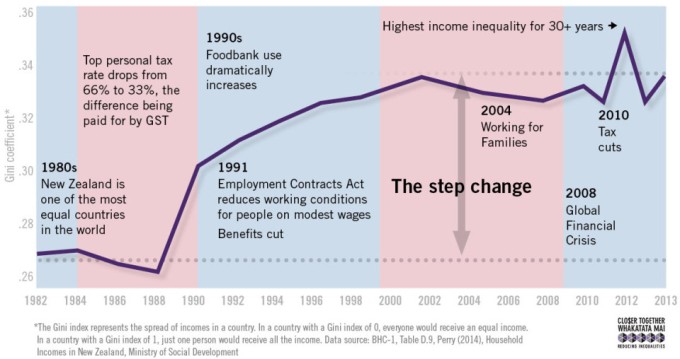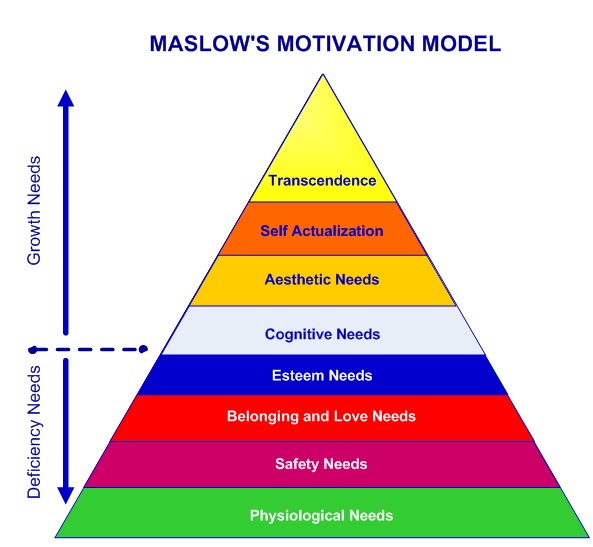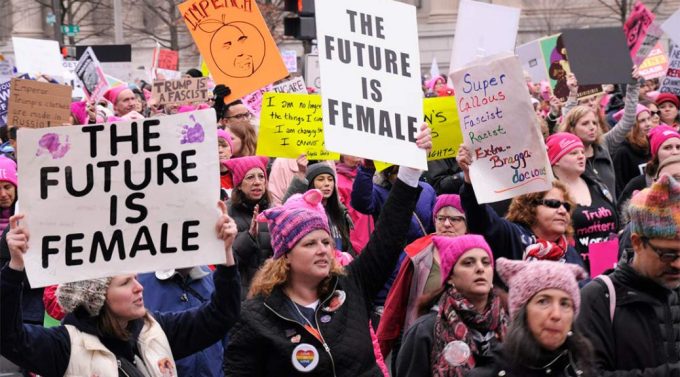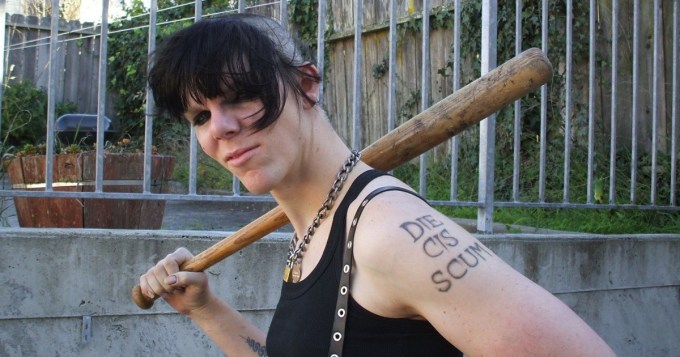Freedom, it’s a funny word and from a practical sense oddly illusive. I’m going to make the case that the meaning has been hijacked both figuratively and literally. In the early 2000’s George W Bush irritated me on a daily basis, when he justified the destruction of Iraq, as “defending our freedoms”. Not only was he was happy to go to war on a whim with his best mate Tony Blair without any supporting evidence, he also had the audacity to pluralise “freedom”. Surely, we do not have a multitude of “freedoms”, we either have “freedom”, contributions to freedom, degrees of freedom or even none at all, but I digress. So what is it, and does it actually exist in the western world?
Firstly, we need to define it. Mirriam Webster’s Dictionary states:
Freedom
1. The quality or state of being free: such as:
a) The absence of necessity, coercion, or constraint in choice or action.
b) Liberation from slavery or restraint or power of another: Independence.
c) The quality or state of being exempt or released from something onerous.
d) Unrestricted use.
e) Ease, facility.
f) The quality of being frank, open or outspoken.
g) Improper familiarity.
h) Boldness of conception or execution.
2.
a) A political right.
b) Franchise, privilege.
Evidently freedom can be described in a multitude of ways, however, throughout the Neoliberal world the notion of freedom is much more specific. In 1962 Milton Friedman, US economist and one of the primary proponents of neoliberalism (which was largely referred to as free market economics) published a book called “Capitalism and Freedom“. In this, one of his main ideas opined that, economic freedom must be a prerequisite for political freedom. This was a view supported by right wing/ libertarian thinkers and luminaries such as, Ludwig van Mises, Ayn Rand and Friedrich Hayek. Friedman argues that freedom should include economic freedom. This idea goes beyond simply proclaiming that individuals have a right to act freely in the market, but that the market itself should be free from government regulation.
Neoliberalism in theory, through economic freedom was alleged to allow autonomy and creativity to develop. What has occurred over time is practically all meaningful decisions boil down to money. Whether this involves shipping jobs off-shore to increase corporate profits, offering zero hour contracts or smashing the union’s ability to negotiate decent pay and workers rights, all resolutions are shaped by the bottom line. Government’s from the late 70’s in the UK, or early 80’s in the US and New Zealand started to operate in the same finance driven way. In New Zealand ‘reforms’ (code for cuts) were severe and brisk. Historically in NZ this period is referred to as Rogernomics, after the then Finance Minister Roger Douglas.
In typical neoliberal fashion, most state owned assets in New Zealand were sold off either partially or fully. Tax rates for high earners were massively reduced (66-33%), replaced by a regressive goods and services tax. Unemployment rose dramatically from 3.9% in 1985 to 10.7% by 1992. For Roger Douglas this was considered a triumph, as inflation dropped from 15.4% in 1985 to 6.4% by 1988. Douglas’s obsession with inflation was injected with steroids following the arrival of a National government in 1990, as levels of people out of work climbed to unprecedented levels. Compounding this misery, unemployment benefits were often reduced. The consensus of the time erroneously suggested that high payments reduced any incentive to work.
Using narrow metrics such as, inflation and national debt reduction, one could argue that this ideology, referred to by Naomi Klein as “shock doctrine” was a success. On the contrary, if we acknowledge that neoliberalism was purported to positively affect employment, income levels and economic growth, it’s clear that this was and is still an abject failure. In New Zealand the economy shrank by 1% between 1985 and 1992, contrasting with the average OECD country who saw growth of 20% over the same period. Poverty increased dramatically, with 1 in 6 people living below the poverty line in 1992. Even when employment eventually did improve it was primarily due to a huge rise in part-time work. During this time, unsurprisingly income inequality rose sharply as the nation’s richest citizens enjoyed the bulk of the gains.

New Zealand is just one example of the overall neoliberal social experiment. Of course, there have been similar stories all over the western world as people and their jobs were sacrificed in the name of profit. So the question must be asked, who’s freedom does this doctrine protect? It certainly wasn’t the miners in the UK during the 80’s or the forestry workers in New Zealand and it definitely isn’t the many homeless who live on the streets. While the wealthy continue to acquire greater freedom to become ever richer, many of the working class have lost or are losing their freedom in the form of dignity and autonomy due to a lack of employment or bullshit jobs. All this suggests that according to the neoliberal doctrine, unlimited freedom for the ruling elite, economic or otherwise clearly outstrips any humble needs required by the vast majority of its citizens.
The middle classes are another group tied to this perpetual neoliberal nightmare. Firstly, most of these people have sustainable enough work to allow them a veneer of freedom, obtaining suitable housing, food, education and other services. However, this group is only given the illusion of choice in the form of unlimited obtainable goods for which to purchase. This commodification of freedom is a powerful opiate in which to keep the middle classes occupied as they purchase more crap than they need, in order to fill a gaping hole in their meaningless empty lives. Another way to anaesthetise the middle classes is by proposing a differing form of equality, in the shape of identity politics. This divides people into ever increasing competing tribes, often based on gender, race and sexuality.
This type of political participation is well suited to the professional and middle classes. It offers a way of feeling virtuous, all the while providing a faint whiff of moral superiority. One now has a way of feeling righteous without pandering to those uncultured grubby working class types, who are often labelled racist, uneducated and sexist. In the 1990’s identity politics burst onto the scene, largely endorsed by the likes of Tony Blair and Bill Clinton. Now it provides a standard blueprint for mainstream politics, allowing governments to adhere to unbridled capitalism while appeasing the masses. This political “sleight of hand” cunningly shifts any blame or guilt away from the rich and the middle classes back to the most powerless in society, namely the working class.
Identity politics also has the added bonus of providing the middle classes, who have less to worry about, a way feeling smugly principled in the comfort of their own suburban four bedroom detached house. This pious morality and elevated sense of superiority manifests in just about every Brexit debate ever witnessed online involving a Remainer. This politically insulated group have an incredible ability of failing to understand why anybody in their right mind would vote against the EU. Despite the fact that many working class families in locations such as; South Wales, the North and the Midlands have witnessed a catastrophic collapse of industry and by association the disappearance of skilled jobs from these areas.
The funny thing is, the real or old left have always cared about minorities, as it was felt these groups often made up the most precarious and vulnerable people in society. In this current political climate, however, the idea of considering yourself for example as colour-blind is in itself now considered racist. The game has dramatically changed, now groups compete for the title of most oppressed, seeking to eradicate racism and sexual discrimination, with further racism and sexual discrimination. Apparently, this time around it’s all OK, as we are told this is the good type of bigotry. With the ‘woke’ certain to be on “the right side of history” and thus delivered from evil.
In truth, the middle classes are only offered a limited bandwidth of freedom, that of the right to choose which new car to buy or maybe the colour of kitchen to install. In addition, they get to experience feelings of intellectual and moral dominance other those who have been systematically crapped on for roughly 40 years. As long they don’t look up and ask the big questions, such as, is there a better system than this, all will be hunky-dory on planet bourgeois. Freedom is an illusive beast, while the middle class have a slither of freedom, the working class generally have none.
So where is freedom’s natural habitat? Is it to be found in our democracy? Do we even have a democracy? If so, is it functioning? Furthermore, are democracy and freedom even compatible? I would like to suggest freedom is a not zero sum game, but quite often one person’s exercising of their rights can generally have an impact on other people, rather like “cause and affect”. Can we maximise the amount of people having access to freedom? What would be the human cost? To satisfy this, would our idea of freedom be compelled to change? So many questions, all lacking satisfactory answers.
As a thought experiment; consider a family who may exercise their freedom to buy a SUV to pick up their kids from school, plus embark on a couple of long haul holidays each year, purely because they feel they work hard and therefore deserve it. This in isolation could appear totally innocuous and reasonable. Over time, however, it may well be argued this would contribute to rising CO2 in our atmosphere (note the word contribute not cause), leading to sea level rises. Climate Change according to the data available will have a profound effect on atolls such as the Cook Islands, ironically a holiday destination. The rise of oceans will have a deeply detrimental affect on people such as the Cook Islanders, impacting their homes, food sources and their livelihood. So who’s freedom is more important?
In business Jeff Bezos has a right to make a bucket full of money to fulfil his idea of freedom, which incidentally amounted to over $150 billion until his recent divorce. Mr Bezos who presides over the Amazon retail empire, while accommodating his substantial financial appetite also has a reputation for treating his workers, who’s labour create his wealth, particularly badly. I’m sure some people reading this may declare that people don’t have to work for him and this is of course true. Sadly many communities have seen whole industries vanish due to neoliberalism and with little transferable skills many often have to grab whatever is available to feed their family.

What’s more, in a quest to rake in even more obscene amounts of cash, Jeff Bezos isn’t too fond of paying taxes and like many of the rich, he has the means to navigate around the tax laws. In addition, during Amazon’s early days there was a concerted effort to undercut any opposition with the express intention of eliminating all competition. In a neoliberal and indeed a libertarian universe this is considered fine and dandy. Through his pursuit of freedom (aka capital) Bezos has consequently left a trail of people who had their freedom trampled upon. This includes his workers dignity, who are expected to process 300 packages in an hour, at times urinating in bottles to reduce ‘idle time’. Or indeed, the freedom of small businesses to provide customers with choice and indeed a decent income for themselves.
If the system most of us reside in is chiefly concerned with money, implying that this leads to freedom, by that logic those with the biggest pile of dosh must obviously have the most freedom. I’m sure some people sympathetic to Mr Bezos will offer that his lack of tax payments fall well within current laws. But this legal leniency conveniently omits the glaring truth that the rich can lobby (bribe) political representatives to adjust or remove troublesome legislative roadblocks accordingly. On top of this, taxes enables society to function for the many who are reliant on the state for a wide range of services, such as; education, health and the implementation of the law.
Sickeningly, an overt use of money and power is routinely exercised during the US election cycle, undeniably with significant outcomes. For example, in the 2014 US midterm elections the biggest spenders generally won, this occurred 94% of the time in the House of Representatives and 82% in the senate. As Neil Diamond once sang in the song Forever in Blue Jeans, “money talks”. In stark contrast to the wealthy movers and shakers, the rest of the populous get to vote every 3 to 4 years or so nationally. This charade offers a modicum of democracy, despite that the overwhelming majority of real power lies in the hands of a few.
Each time these democratic extravaganzas (elections) arise it is made ever more difficult to take part. This is particularly true in the US and to some extent the UK. For many it is difficult to build up the enthusiasm in order to exercise our fleeting democratic rights. Realistically, we get to vote for someone who has nothing in common with most normal folk, often with no interest in them (apart from their vote) and who generally doesn’t represent the ideas or principles of the people. Furthermore, voting restrictions in the US, such as ID legislation has created more barriers to this alleged democracy. This travesty is currently taking place in a country which reported a 55% voter turnout in 2016.
Specific ID requirements are also being pushed by the Conservative government in UK. It’s worth noting that the parties supporting these types of policies are right wing entities, in the form of the Tories and the Republican’s. It is strongly suggested that these restrictions disproportionately affect some of the most marginalised people in society. Groups such as the homeless, older voters and others from minority backgrounds are less likely to possess the forms of ID accepted though these changes.
Freedom appears to be very much a one way street. What we have is, neoliberal parties intent on erecting obstacles preventing certain sections of the community, who are often sympathetic to left wing ideas a chance to vote. Predictably, both right wing tribes in the UK and the US have stated that these proposed measures are intended to prevent voter fraud, which incidentally is negligible on either side of the pond. This a typical tactic, whereby a solution is created for a problem that doesn’t exist, which usually possesses another often darker purpose
So, answering the questions above; do we have freedom in the western world? Clearly this depends on your interpretation of freedom. Using a neoliberal definition, most of us only have a limited amount of freedom, with many of our fellow citizens being excluded from participating in society at a very basic level. The bourgeois middle class and even most individuals in the upper echelon, only have freedom primarily with regards to consumer choice, with some possible minor political clout.
However, this group is still wedded to a system that prevents many from dispensing with their meaningless jobs to pursue more worthwhile and satisfying endeavours. Undoubtedly this bunch are in a bind. By renouncing their comfortable and for some, well paying dreary existences, this could result in decreased consumer freedom and economic status. Conversely, this type of rejection of the status quo may well lead to a new psychological flexibility, devoid of this maniacal pursuit of status.
Referring to an earlier thought; do we live in a democracy? It’s worth pointing out that neither of the last two UK Prime Ministers, Theresa May and the newly crowned Boris Johnson were voted in by the nation’s populous. In contrast both were selected via a tiny section of Conservative party supporters with a distinctly myopic perception of the world. This route is also popular in Australia, where inner party coups, resignations and early retirements have recently been the norm when choosing a new Prime Minister. Judging by this current trend of handing over the baton of power at the very top level thereby bypassing the general population, I would offer that the future of democracy is shaky at best.
The merging of the state and powerful corporations renders the voice of the many effectively irrelevant. Claims of a democracy are devoid of any substance, while freedom is only permitted within the narrow parameters of a neoliberal framework. This unholy alliance between business and government is where the true power lies. Meanwhile, each citizen has the privilege of choosing between different flavours of the same product every few years. Is democracy synonymous with freedom? If what we have is a democracy, then the answer surely must be no. Although, if we can cultivate a society where direct democracy is available on every conceivable level of society, then maybe freedom still has a chance.
 Under this more numerically inclusive vision of freedom, Billionaires such as the Koch brothers could conceivably argue that their freedom to wreck the planet while making a truck load of cash would be inhibited. Here lies the problem, if someone pursues self-determination to the nth degree, another’s freedom possibly set at a more modest or basic level will unquestionably be in jeopardy. Maybe as an alternative we should take a utilitarian approach, in other words, endeavouring to secure freedom at a humanitarian level for the most amount of people first.
Under this more numerically inclusive vision of freedom, Billionaires such as the Koch brothers could conceivably argue that their freedom to wreck the planet while making a truck load of cash would be inhibited. Here lies the problem, if someone pursues self-determination to the nth degree, another’s freedom possibly set at a more modest or basic level will unquestionably be in jeopardy. Maybe as an alternative we should take a utilitarian approach, in other words, endeavouring to secure freedom at a humanitarian level for the most amount of people first.
In this spirit, the optimal outcome would be to ensure; food, shelter, warmth, education, healthcare, security, an equal say in societal decisions and other many tools enabling people to flourish in life. Not everyone can obtain the highest level of freedom that they desire at the same time. Therefore, an individual’s quest for unlimited levels of autonomy must be tempered and prioritised to ensure all members of society have a base level of freedom providing all an opportunity to engage in society.


















